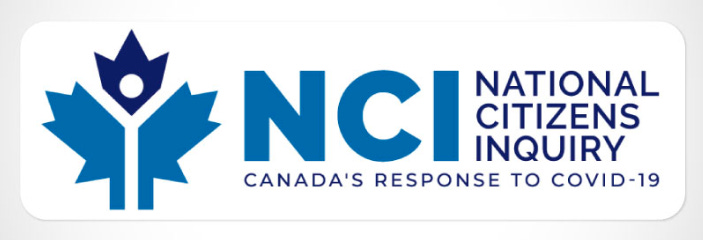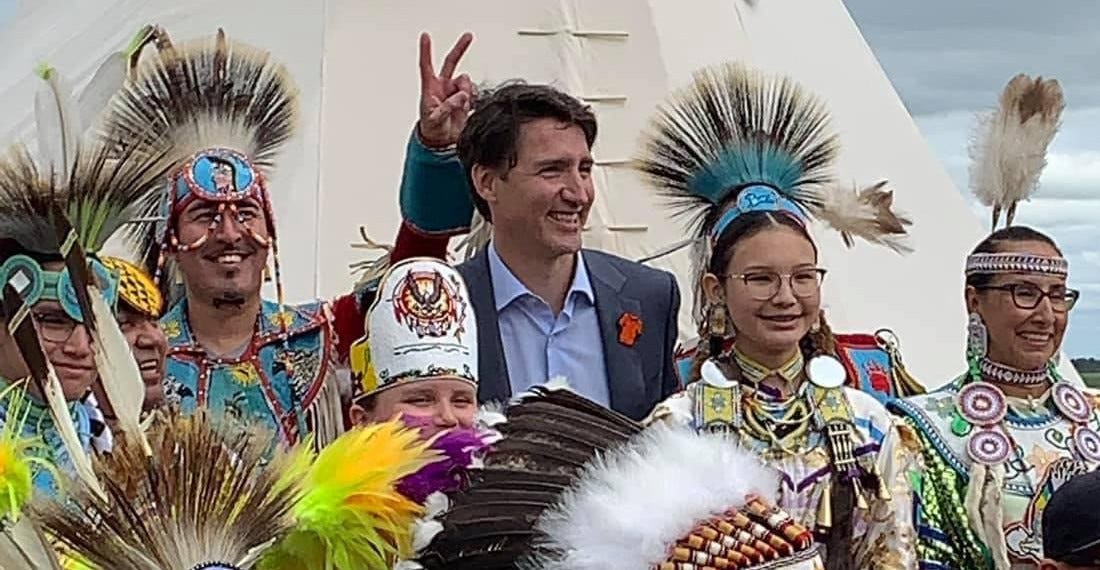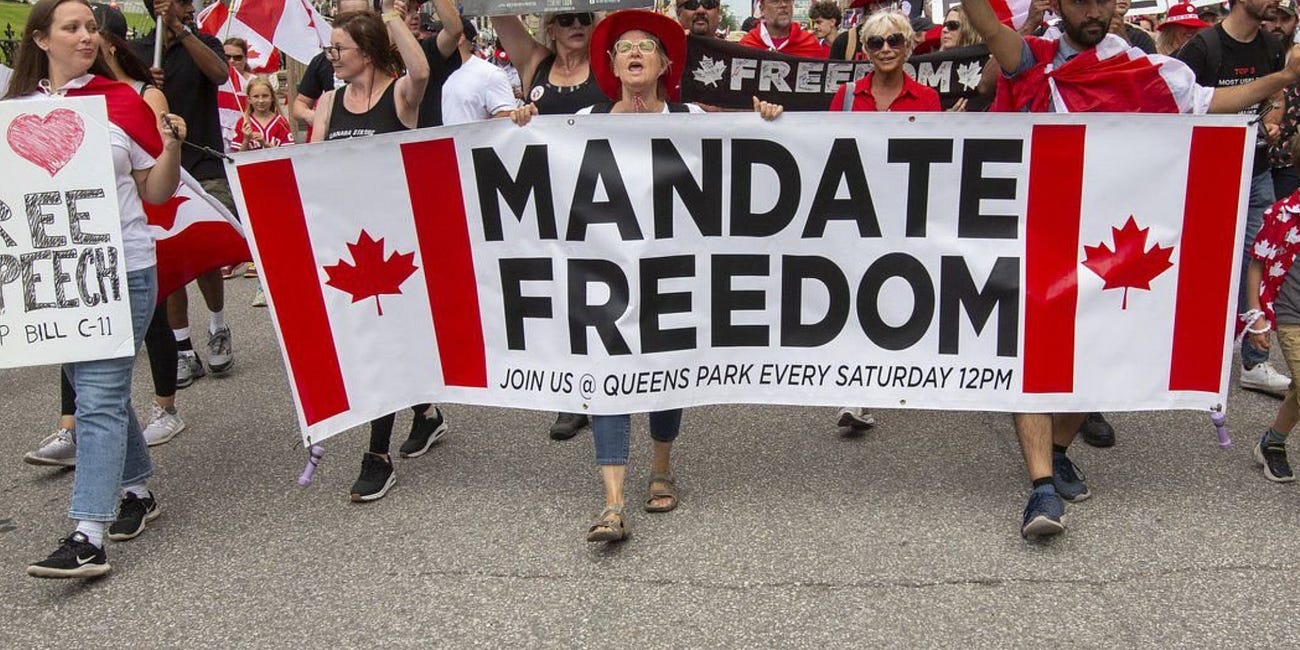Inquiry into the Appropriateness and Efficacy of the COVID-19 Response in Canada
"The terrible aftermath of the COVID-19 pandemic was not due to the virus itself... they were the result of the interventions implemented by the various levels of government."
The National Citizens Inquiry released its final report on Monday entitled: Inquiry into the Appropriateness and Efficacy of the COVID-19 Response in Canada.
It's 5,324 pages long.
If you're looking for something to read until Christmas, you can get the report here. For those who’d like to spend a little less time reading about stuff like this, you could always check out my previous post from February: Canada’s Pandemic Response Was the Crime of the Century, and We Should Never Let it Go. That will only take you about five minutes and will likely say pretty much the same thing.
Obviously, I haven’t taken the time to read through all 5,324 pages in the last day and a half, but I did read the conclusion part of the Executive Summary.
This conclusion will also only take you about five minutes to read. I’m looking forward to hearing some analysis of this report in the following weeks and months by those with greater understanding, and I’m really hoping that many ordinary citizens will take it upon themselves to examine this in greater detail as well. After all, this was the whole point of the National Citizens Inquiry right from the start.
1.13. Conclusions
Administrative State: Is the State benevolent or guilty of malfeasance?
As the famous Nobel laureate physicist, Steven Hawking, judiciously said:
The greatest enemy of knowledge is not ignorance, it is the illusion of knowledge.
In Canada, the administrative state used—and continues to use—the illusion of knowledge to maintain power. This was evidenced throughout the three-year COVID-19 experience when bureaucrats and administrators alike were perceived as all powerful. However, this illusion was only an image accomplished through an elaborate and inextricably intertwined web of deceit, much like the tactics of the sorcerer’s apprentice. Meanwhile, politicians were more than happy to impose popular but ill-advised, half-baked health measures, justifying these emerging policies as well-intended measures to protect public health.
Sadly, the majority of people succumbed to the measures out of fear, a lack of unbiased and objective information, and questionable trust in long-standing institutions.
In this context, as long as most people perceive benefits from the government narrative, everything will be done to protect the illusion of the effectiveness of the ill-advised health measures. But as we witnessed, the administrative state, to achieve this end, relied on poor modelling and statistics full of omissions while ignoring scientific knowledge and understandings. The administrators also dismissed the wisdom of true experts who have credentials considerably above the pretended expertise of technocrats who systematically censored any dissenting voices threatening their usurped authority.
This is best illustrated by the numerous accounts of ignorance of epidemiology; their ineffective, unjustifiable non-pharmaceutical interventions (NPIs); their willful ignorance of state-of-the-art medical practice; and last but not least, their superficial knowledge of the intricacies of the immune system. The only way out of this conundrum is through our constitutionally protected freedom of speech, wherein widely held beliefs, thoughts, and opinions are respected, and likewise, conversations, debates, and dissenting voices are heard. This should be particularly true in the scientific and medical professions.
We know the very essence of society is human interactions, and embedded therein, relationships. Because human societies thrive on narratives that present distorted views of reality and define culture according to unwritten rules, new narratives need to emerge. These are particularly critical when societies face a major crisis, like a pandemic. Sometimes, low-resolution representations of reality need to be updated and subsequently redefined by rigorous debates to orient better decision-making and implement more effective solutions to vexing problems going forward.
Inquiry into the Appropriateness and Efficacy of the COVID-19 Response in Canada
This Report is an attempt to craft a more balanced and objective narrative based on the hundreds of testimonies heard during the 24 days of hearings across Canada. Why? Because Canadians deserve to hear the concerns raised and to determine their own informed opinions regarding the health crisis we have just faced and the appropriateness of the mitigation measures used by government authorities. It will be up to readers to determine for themselves whether this new narrative is a more comprehensive representation of reality than the messaging delivered by governments and the mainstream media during the three years of the COVID pandemic.
Specifically, this Report examines the health, civil, economic, and societal issues resulting from the COVID-19 response. The Report also makes specific recommendations to improve the management of any future health crises.
What, How, and Why?
This Report focuses on answering questions that are in the realm of scientific and forensic investigations. “What” happened? “How” did it happen? And although the ”why” deserves attention too, the Commissioners have determined that it is beyond the scope of this investigation. Still, this existential question will undoubtedly be the subject of many scholarly books for decades to come.
By way of further explanation, asking why is certainly not mundane to the Inquiry as it strikes many sensitive cords for most people, whether philosophically, psychologically, or spiritually. However, going down that slippery slope can lead into a maze where one looks for ulterior motives, where there arises a need for, or requires, soul-searching and psychological discussion, which is outside the borders of rigorous scientific investigations. Attributing motive is not part of the playbook of the scientific method.
What is required are open and honest debates to foster our collective understanding of what happened and how it happened. In any healthy debate, one has to stay focused on the data, the information, and the knowledge before the wisdom can blossom. This is why forensic investigations are critical—so that conclusions can be reached, apart from agendas and ulterior motives. It is for this reason that the Commissioners have agreed to abide by the witness testimonies to the best of their ability in seeking the truth. These are the truths we have sought throughout the hearings. Moreover, through engaging in this cross-country experience, we can come together as a nation, restoring the very principles and freedoms that have defined Canada since 1867.
Further reading from BlogOfKen:
Canada's Pandemic Response was the Crime of the Century and We Should Never Let it Go
Forgiveness is a beautiful thing. More beautiful, it is said, for the forgiver than for the one being forgiven. There's a freedom that comes from letting something go - from refusing to hold on to negative emotions that will just drag you down and feed your bitterness.
The Canadian Government is Being Run by Highschool Students
Once again Justin Trudeau's government has made it very unlikely that I will ever attempt to write fiction again because really, how can one even compete with this level of reality? Two major scandals barely a week apart is just another day in the life of our Drama-Teacher-Turned-Prime-Minister.
There is No Freedom Without Freedom of Speech
They say that you don't know what you got ’til it's gone, but there's a lesser known truth that goes something like this: You don't know what you're missing if you've never had it. The only reason people in this part of the world long for the weekend all week long is because they've had a weekend before. They've experienced what it's like to be relativel…









“As the famous Nobel laureate physicist, Steven Hawking...” -- Sadly, Hawking died without ever having received a Nobel prize. Also, it’s “Stephen,” not “Steven.” Makes me a little reluctant to read the other 5,000+ pages of this tome if the authors/editors can’t even get this right...
Interesting. I think your headline could’ve been ‘Special Enquiry Set up to Reach a Particular Set of Conclusions Reaches the Exact Conclusions it Was Set up to Reach’